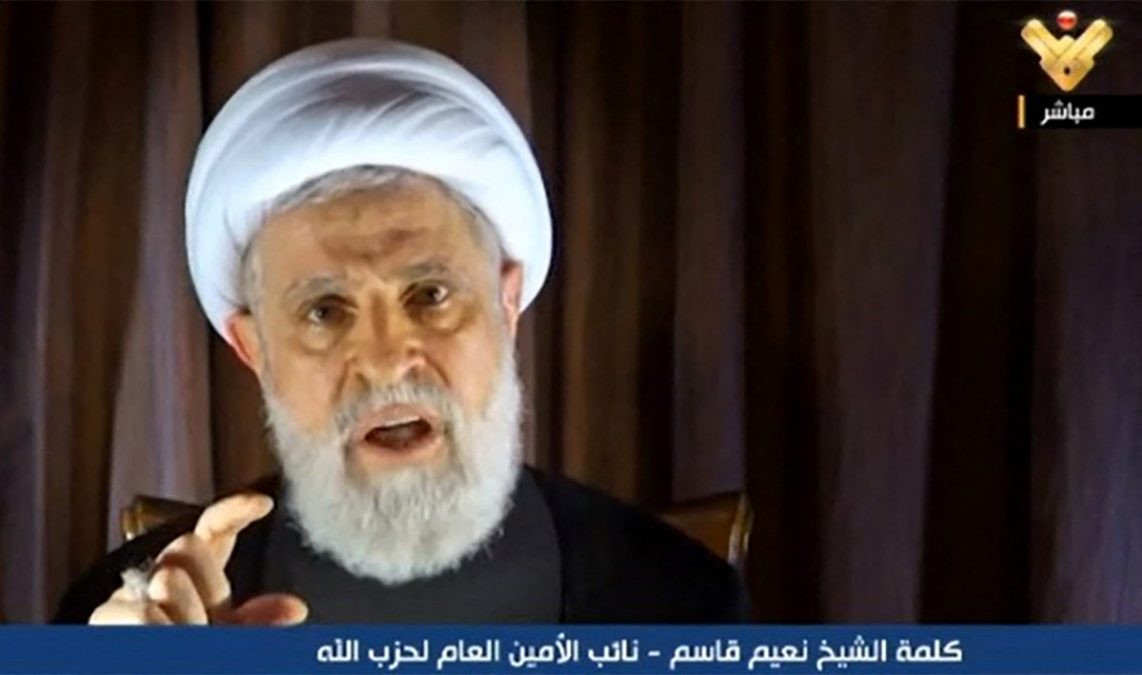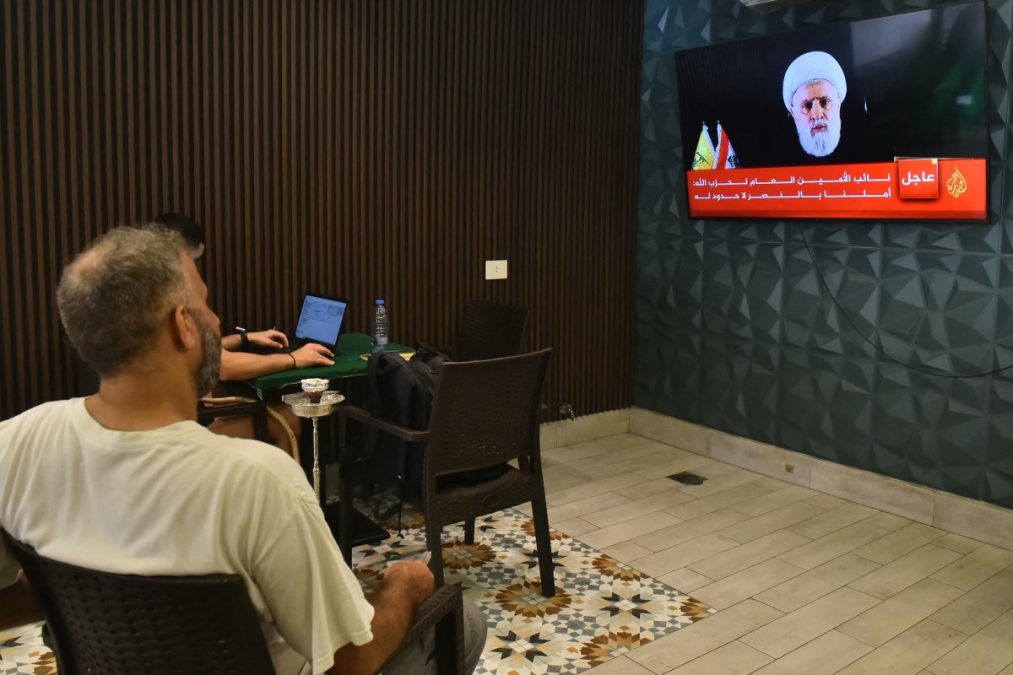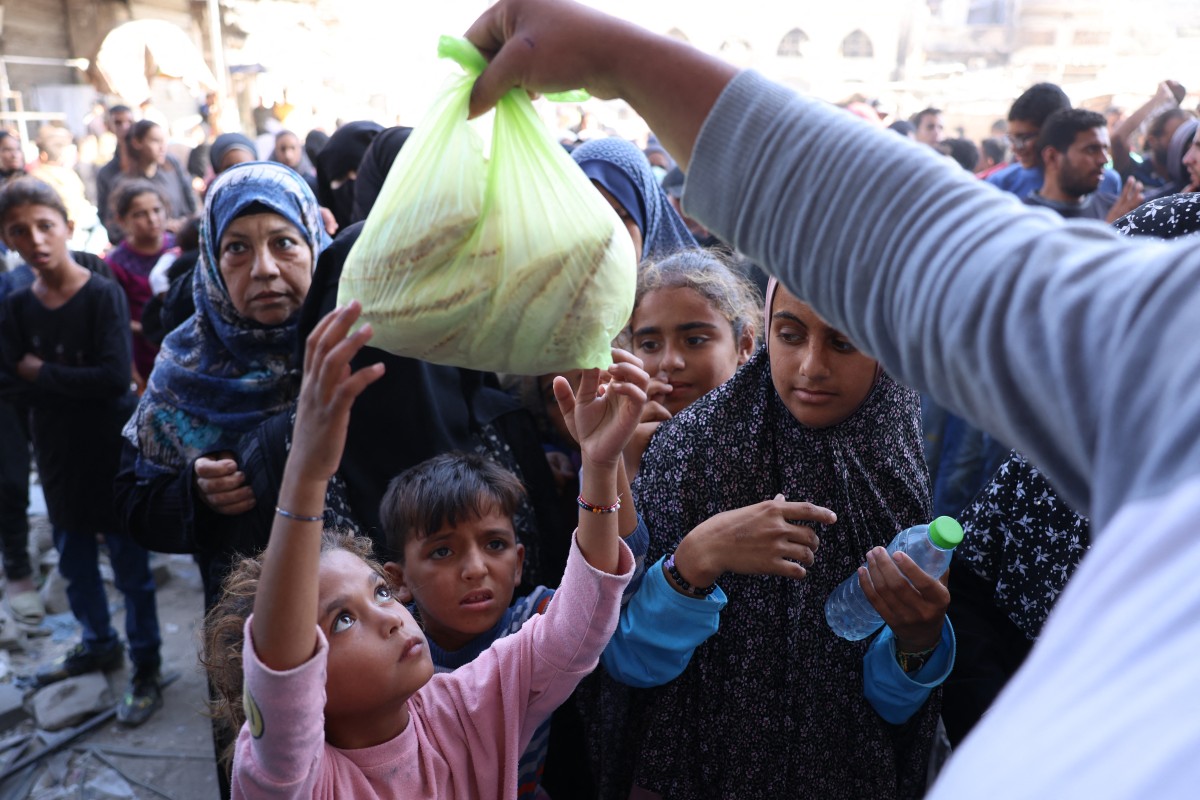Beirut, Lebanon – Lebanon’s Hezbollah movement announced Tuesday it has chosen deputy head Naim Qassem to succeed Hassan Nasrallah as leader after his death in an Israeli strike on south Beirut last month.
“Hezbollah’s (governing) Shura Council agreed to elect… Sheikh Naim Qassem as secretary general of Hezbollah,” the Iran-backed group said in a statement, more than a month after Nasrallah’s killing.
Hezbollah pledged to keep “the flame of resistance burning” until victory is achieved against Israel after all-out war erupted on September 23.
Qassem was elected by the five-member Shura Council, the group’s main decision-making body, two days before Tuesday’s announcement, a source close to Hezbollah said.
The source, speaking on condition of anonymity because he is not authorised to speak to the press, said a new Shura Council would be elected after the war.
The council may then opt to elect a new leader or keep Qassem in the top post, the source said.
Qassem had long operated in the shadow of Nasrallah, a towering leader who was one of the most enigmatic and influential figures in the Middle East.
Hashem Safieddine, the head of Hezbollah’s executive council, was initially tipped to succeed Nasrallah.
But he too was killed in an Israeli air strike on Beirut’s southern suburbs shortly after Nasrallah’s death.
Hezbollah’s Palestinian ally Hamas, whose October 7, 2023 attack on Israel triggered the war in the Gaza Strip, welcomed Qassem’s election.
“We consider this election evidence of the party’s recovery from the targeting” of its leaders, Hamas said in a statement, pledging “support for the new leadership”.
Qassem, 71, was one of Hezbollah’s founders in 1982 and had been the party’s deputy secretary general since 1991, the year before Nasrallah took the helm.
He was born in Beirut in 1953 to a family from the village of Kfar Fila on the border with Israel.
He was the most senior Hezbollah official to continue making public appearances after Nasrallah largely went into hiding after the group’s 2006 war with Israel.
Since Nasrallah’s death in a huge Israeli air strike on September 27, Qassem has made three televised addresses, speaking in more formal Arabic than the colloquial Lebanese favoured by Nasrallah.
With less charisma and fewer oratorical skills than Nasrallah, Qassem said the group would soon name a new leader.
He claimed Hezbollah’s military capabilities were intact, and backed efforts by Lebanese parliament speaker Nabih Berri to broker a ceasefire.
In his most recent speech on October 15, Qassem said a ceasefire was the only way Israel could guarantee the return of its residents to the north.
The Israel-Hezbollah war erupted last month after nearly a year of cross-border exchanges of fire.
On September 23, Israel ramped up strikes on Hezbollah strongholds and sent in ground forces while killing one member of the group’s top leadership after another.
The war has killed more than 1,700 people in Lebanon since September 23, according to an AFP tally of health ministry figures, though the real number is likely to be higher due to gaps in the data.
Israel’s military says it has lost 37 soldiers in its Lebanon campaign since it began ground operations there on September 30.
‘Won’t last ‘long’
Israel’s Defence Minister Yoav Gallant warned Hezbollah’s new leader, Naim Qassem, on Tuesday that his appointment was “not for long”.
“Temporary appointment. Not for long,” Gallant wrote in a post on X alongside a photograph of Qassem, whom Hezbollah had earlier named as assassinated leader Hassan Nasrallah’s successor. In a separate post in Hebrew, Gallant wrote that the “countdown has begun”.
Gallant, who visited the Israeli military’s northern command on Tuesday, said in a later statement that he estimated Hezbollah’s rocket arsenal to have been mostly destroyed by Israeli attacks.
“I estimate the residual capacity of (Hezbollah) projectiles and rockets to be in the order of 20 percent, and it is no longer organised in a way that it can fire volleys,” he said.
On Tuesday, around 60 projectiles were fired by Hezbollah into Israel as of 15:00 (1300 GMT), the military said in a statement.

In recent weeks, Hezbollah has fired between 180 and 200 rockets on some days, according to figures provided by the Israeli military.
The military has also carried out intense air strikes on Hezbollah’s weapons production and storage facilities inside Lebanon.
Gallant said that tens of thousands of soldiers had succeeded in pushing Hezbollah “out of all the villages along the border and destroyed infrastructure of all types that were there”.
“These things create a different reality in Lebanon and in the region as well”, he said.
Regional analysts have said previously that Hezbollah possessed an arsenal of approximately 150,000 rockets before it began fighting Israel on its northern border in October last year following Hamas’s October 7, 2023 on Israel.
It has unspecified number of anti-aircraft, anti-tank and anti-ship missiles as well as ballistic missiles capable of accurately targeting deep inside Israeli territory.
Deadly Israeli strike in Gaza
An Israeli air strike on a single residential block killed nearly 100 people on Tuesday, Gaza’s civil defence agency said, leaving rescuers scrambling for survivors as Israel pursued its offensives in Gaza and Lebanon.
Israel’s key ally and backer the United States called the strike — which killed a large number of children — “horrifying”.
The bombing came with Israel facing an international backlash after its parliament voted overwhelmingly to ban UNRWA, the main United Nations aid agency working with Palestinians in Gaza and the occupied West Bank.
Palestinian rescuers and desperate family members gathered around the demolished five-storey block in Beit Lahia in northern Gaza.
A charred body with long hair hung from an upper-storey window and bodies in blankets were lined up in the street as stunned relatives sought to identify loved ones.
“The number of martyrs in the massacre of the Abu Nasr family home in Beit Lahia has risen to 93 martyrs, and about 40 are still missing under the rubble,” Gaza civil defence agency spokesman Mahmud Bassal told AFP.

Israel’s military said it was “looking into the reports” of the strike. It earlier reported its forces had killed 40 Hamas fighters, and the loss of four soldiers in Gaza.
‘Women and children’
“The explosion happened at night and I first thought it was shelling, but when I went out after sunrise I saw people pulling bodies, limbs and the wounded from under the rubble,” said Rabie al-Shandagly, 30.
“Most of the victims are women and children, and people are trying to save the injured, but there are no hospitals or proper medical care,” he told AFP.
Washington expressed deep concern.
“This was a horrifying incident with a horrifying result,” State Department spokesman Matthew Miller told reporters.
“We have reached out to the government of Israel to ask what happened here.”
Israel’s military has been conducting a sweeping air and ground assault in northern Gaza since October 6 — particularly around Jabalia, Beit Lahia and Beit Hanoun — saying it aims to prevent Hamas regrouping.
Tens of thousands of Palestinians have fled the area, more than 12 months into the war sparked by Hamas militants launching a bloody cross-border assault into Israel on October 7 last year.
Israel’s retaliatory offensive has killed at least 43,061 Palestinians in Gaza, most of them civilians, according to figures from the Hamas-run territory’s health ministry which the United Nations considers reliable, triggering warnings of a humanitarian catastrophe.
International concerns mounted after the Israeli parliament voted overwhelmingly to ban UNRWA, the UN agency for Palestinian refugees.
Israel strictly controls all humanitarian aid shipments into Gaza, and UNRWA has provided essential aid, schooling and healthcare across the Palestinian territories and in the diaspora for more than seven decades.
‘Devastating consequences’ –
“There is a deep connection between the terrorist organisation (Hamas) and UNRWA, and Israel cannot put up with it,” lawmaker Yuli Edelstein said in parliament as he presented the proposal.
But several of Israel’s Western allies including the United States voiced deep disquiet.
Miller reiterated a warning to Israel that Washington could withhold military assistance without improvements in humanitarian aid into Gaza.
British Prime Minister Keir Starmer said London was “gravely concerned” and the French foreign ministry said it “very strongly regrets” the law.
Germany, a staunch defender of Israel’s security, warned it would “effectively make UNRWA’s work in Gaza, the West Bank and east Jerusalem impossible”.
UN chief Antonio Guterres said the Israeli law could have “devastating consequences” if implemented.
In a letter he sent to Israeli Prime Minister Benjamin Netanyahu, seen by AFP, Guterres argued that under international law an occupying power must implement mechanisms for aiding the people living in that occupied territory.
“If Israel is not in a position to meet such needs, it has an obligation to allow and facilitate the activities of the United Nations,” Guterres wrote.
Israel’s neighbour Jordan, which also hosts UNRWA offices, condemned the ban as a “continuation of Israel’s frantic efforts to assassinate the UN agency politically”.
Netanyahu said on social media that Israel was “ready” to continue providing aid to Gaza “in a way that does not threaten Israel’s security”.








